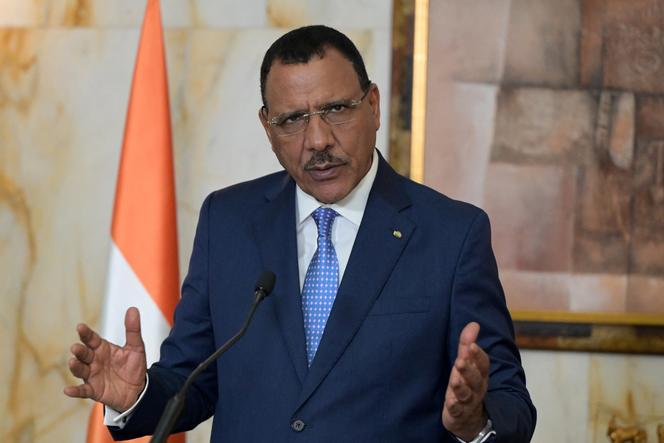


Mohamed Bazoum is continuing to resist, even though a simple stroke of the pen could put an end to his captivity. Since the coup d'état that toppled him on Wednesday, July 26, those trying to oust him have been waiting for him to sign a letter of resignation. But the man who was elected on a Sunday in February 2021 refuses to do so, even if it means remaining in prison with his wife, Khadija Mabrouk, and their 22-year-old son Salem.
For more than 130 days, Bazoum and his family have been locked up in the presidential residence, where his former protectors have turned jailers. General Abdourahamane Tiani, former head of the presidential guard and now leader of the junta, has stationed armed soldiers inside the white villa on the banks of the Niger river. According to the overthrown leader's entourage, only a doctor now has access to the prisoners, and their telephones have been confiscated. "If anyone claims to be able to talk to them, it's a lie," warned a close family friend.
Bazoum, who was still somehow able to meet with Emmanuel Macron and other regional heads of state, has been held in harsher conditions since the new leaders accused him of trying to escape on the night of October 18-19. "It's all a hoax, fabricated by the junta to justify to the Nigerien people the increased surveillance it has since put in place," condemned Hamid N'Gadé, one of his advisers. Outside the palace, the deposed president's family and friends claim to be under surveillance. Several of them have been arrested since mid-October.
It clearly takes more than this to weaken the resolve of 63-year-old Bazoum, the spearhead of the fight for democracy in his country for the past 40 years. His neighbors in Mali, Ibrahim Boubacar Keïta, and then in Burkina Faso, Roch Marc Christian Kaboré, had capitulated without resistance to the military who toppled them from office. But this philosopher by training and grassroots activist is made of stronger stuff.
After the military threatened to prosecute him for "high treason" against those who deposed him, his lawyers took his case to the Economic Community of West African States (ECOWAS) Court of Justice at the end of September in an attempt to obtain his release and reinstatement as leader of the country. The region's elected presidents, worried by the succession of coups – two attempts have been reported in recent days in Sierra Leone and Guinea-Bissau – are expected to plead his case again at the ECOWAS summit on December 10.
You have 75% of this article left to read. The rest is for subscribers only.
